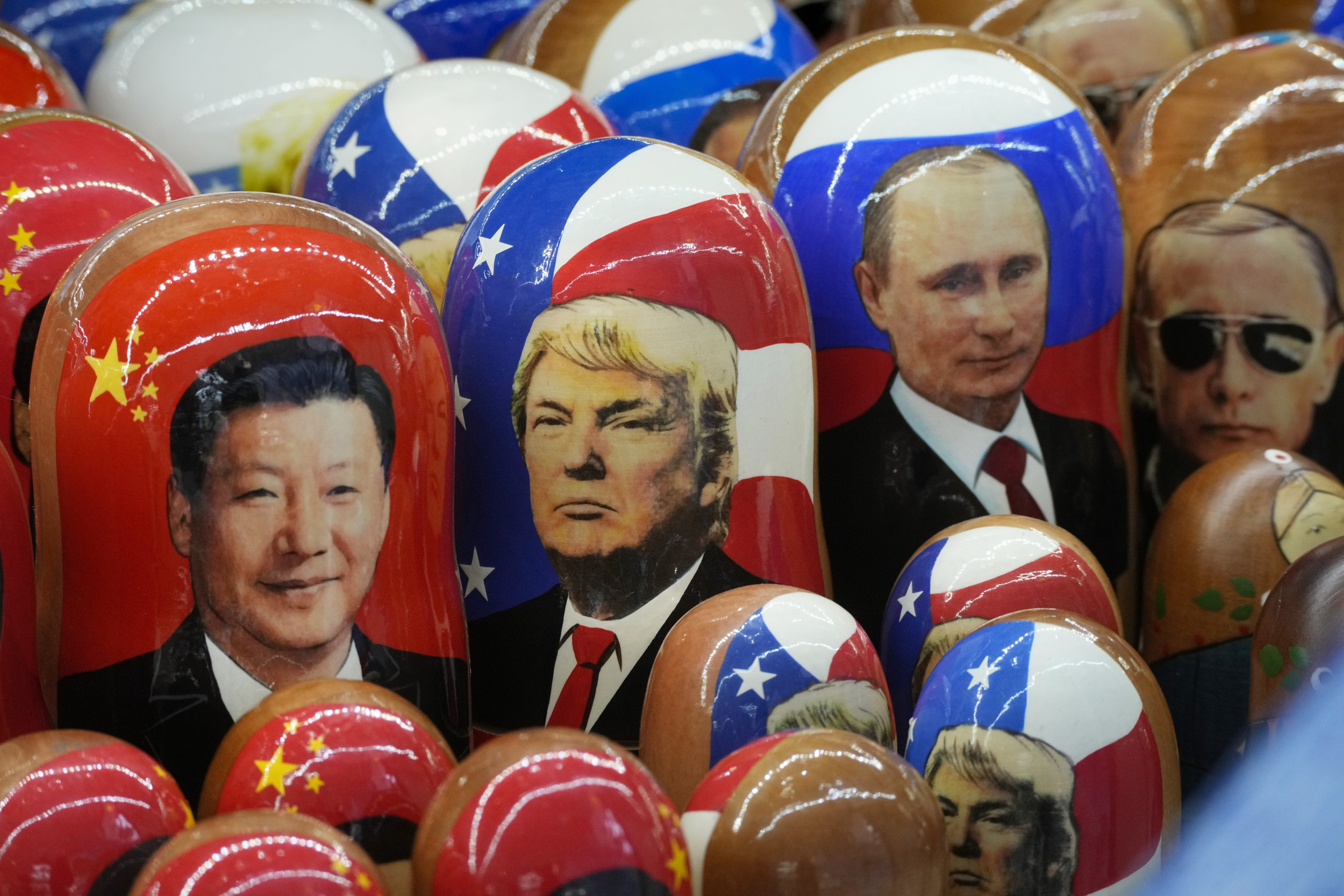President Trump’s overtures to Vladimir Putin have sparked speculation about a potential rift in the strong partnership between Moscow and Beijing, potentially reshaping global alliances. Experts weigh in on the feasibility and implications of this strategy.
What Trump’s Gamble on Putin Could Mean for China

Key Takeaways:
-
Trump’s approach to Putin may aim to weaken Russia’s ties with China.
-
Experts believe dividing Moscow and Beijing would be a monumental task.
-
Signs of friction exist between Russia and China over energy negotiations and historical grievances.
-
Trump’s strategy risks alienating Ukraine and European allies.
-
China could leverage U.S.-Russia detente to expand its global influence.
Trump’s Overtures Spark Speculation
President Donald Trump’s recent moves toward rapprochement with Russian President Vladimir Putin have ignited discussions about a potential weakening of the robust partnership between Russia and China. The possibility of reshaping global alliances has experts considering whether Trump can successfully pull Russia away from Beijing’s embrace.
A Historical Parallel
Former U.S. President Richard Nixon famously reconciled with China’s Communist leader Mao Zedong at the height of the Cold War, a strategy that deepened the Sino-Soviet split. Drawing on this historical precedent, some analysts speculate that Trump may be attempting a “reverse Nixon” by improving ties with Russia to counterbalance China’s growing influence.
The Strength of the Russia-China Partnership
Over the past decade, Putin and Chinese President Xi Jinping have cultivated a “no limits” partnership. This relationship is evidenced by record-high trade volumes and unwavering mutual political support. China has refrained from labeling Russia’s actions in Ukraine as an invasion and has censored anti-war sentiment domestically.
Potential Cracks in the Alliance
Despite the strong alliance, there are signs of underlying tensions. Xi has reportedly frustrated Putin by holding out for more favorable terms on a major natural gas pipeline—an essential project for Russia’s long-term energy exports. Additionally, Chinese nationalists in online forums have expressed discontent over historical territorial losses to Russia in the 19th century.
Isaac Stone Fish, CEO of Strategy Risks, suggests that “there is a possibility of the United States peeling Moscow away from Beijing,” citing mutual distrust between Moscow and Beijing. “Beijing has territorial designs on Russia—the United States does not,” he told Newsweek .
The Challenges Ahead
Experts caution that weakening the Russia-China alliance would be a monumental task. “The Russian-Chinese alliance is a stable and solid relationship that has strong roots in the converging perceptions of their ruling elites and their strategic interests,” said Michal Bogusz, an analyst at the Center for Eastern Studies in Warsaw. “Possible actions by the United States aimed at loosening it and distancing Moscow from Beijing are bound to fail.”
Risks of Alienation
Trump appears to be leaning further and faster toward Putin than many analysts expected. This week, he called Ukrainian President Volodymyr Zelensky a “dictator,” indicating a willingness to alienate Ukraine and its supporters. The American and Russian leaders are expected to meet to continue ceasefire talks initiated by their top diplomats.
Kyiv, currently absent from the discussions, maintains that the return of all Ukrainian territory seized by Russia is a precondition for any peace deal. U.S. officials say a full territorial return is unlikely but have floated the idea of inviting peacekeepers from China and elsewhere—a move that could further complicate international dynamics.
China’s Calculated Response
Beijing may view the evolving U.S.-Russia relationship as an opportunity. With Trump’s assertive approach toward the European Union and NATO, China could position itself as an alternative partner for Europe, both economically and in terms of global governance.
“The U.S.-Russia detente leaves China with more options and potential opportunities,” said Paul Jones, a research fellow at the Center for European Policy Analysis. “Sudden improvements in U.S.-Russia relations raise questions about U.S. credibility among its allies, which China would like to exploit, both in Europe and Asia.”
Liu Pengyu, the Chinese embassy spokesperson in Washington, D.C., expressed cautious optimism: “We are glad to see all efforts committed to peace, including what has been agreed on peace talks by the U.S. and Russia. In the meanwhile, we hope all parties concerned and stakeholders will take part in the peace talk process at an appropriate time.”
Global Implications
The potential shift in U.S.-Russia relations could have far-reaching consequences. European allies, already concerned about Trump’s assertive policies, might perceive a thaw with Russia as neglecting Ukrainian interests. In the Pacific, U.S. treaty allies like Japan could see the move as compromising regional security.
China, meanwhile, could capitalize on these developments, increasing its influence in Europe and the Global South. Chinese involvement in the eventual rebuilding of Ukraine, once unlikely, could become more acceptable to Kyiv, especially if Western support wanes.
The High-Stakes Gamble
Trump’s strategy carries significant risks and uncertainties. While the prospect of driving a wedge between Russia and China is appealing to some in Washington, the solid foundations of the Russia-China partnership make such a shift challenging. As global powers recalibrate their positions, the world watches to see if Trump’s gamble will pay off—or lead to unintended consequences.











